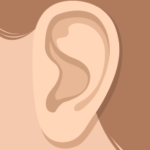When It Comes to Hearing Wellness, Don’t Fur-Get Your Pets!
Just like their people parents, these furry members of the family can experience hearing difficulties too. Read on to learn what you can do.
AVOID EXCESS NOISE
As one of the most preventable causes of hearing loss in humans, loud sounds can also be a problem for the beloved pets in your household. Excess noise can go hand in hand with hearing damage, anxiety, fear, and even trauma. Limiting noise exposure helps support their hearing health and overall wellness.
CONSIDER HEARING PROTECTION
If hightailing it to a quieter space isn’t an option for Rover and Pepper during fireworks or other super-loud situations, hearing protection is another approach that could help. Earplugs and earmuffs made especially for pets help deaden intrusive sounds.
KNOW THE SIGNS
If your pooch or kitty doesn’t react in the usual way to your voice, squeaky toys, the doorbell, or other sounds, hearing loss may be the culprit. Behaviors such as reduced activity, excess barking, loud meowing, and sound sleeping even through the loudest noises may also indicate a problem.
SCHEDULE REGULAR CHECKUPS
Comprehensive vet exams may include not only a check of your pet’s eyes, nose, mouth, legs, heart, skin, weight, and joints but also their ears. It’s a good time to discuss any changes you’ve noticed in their response to commands or other sounds and gain tips on proper nutrition for optimal hearing health.
ADDRESS PROBLEMS EARLY
Early intervention on a suspected hearing condition could make the difference in your fur baby’s quality of life. Not all hearing loss is preventable — for example, a congenital problem, irreversible damage from injury, or another challenge — but working with your veterinarian may help moderate the problem.






Leave a Reply
Want to join the discussion?Feel free to contribute!